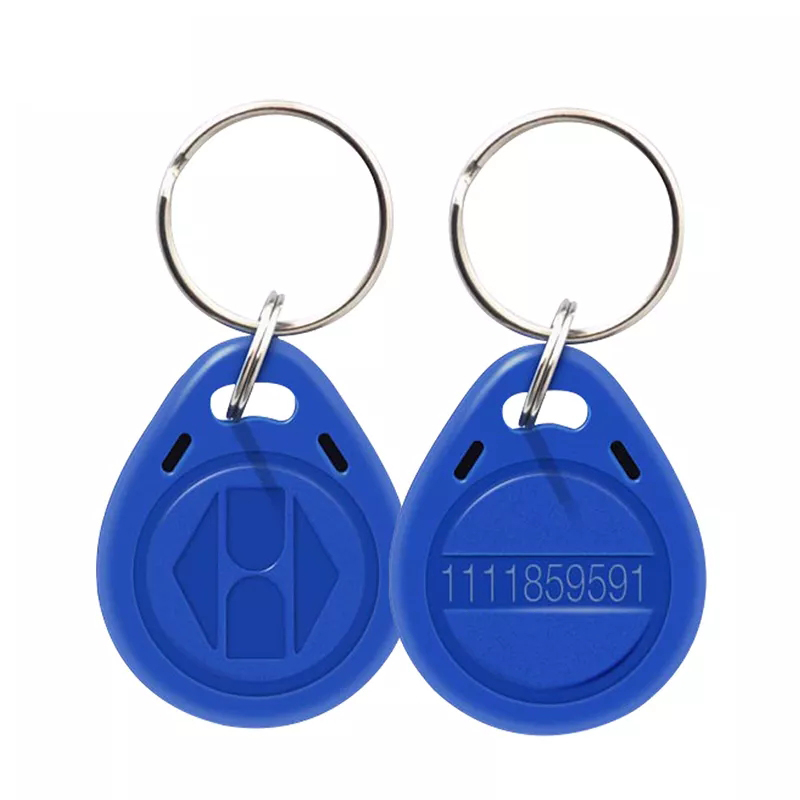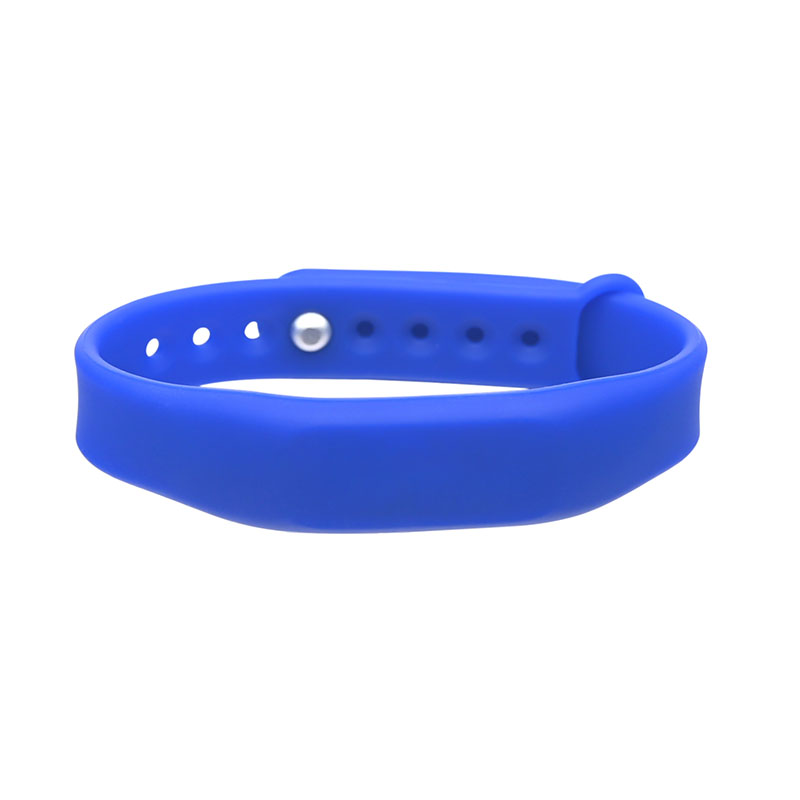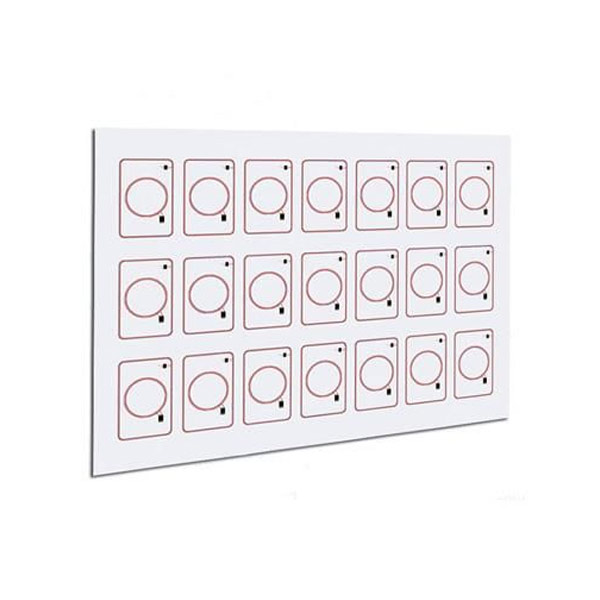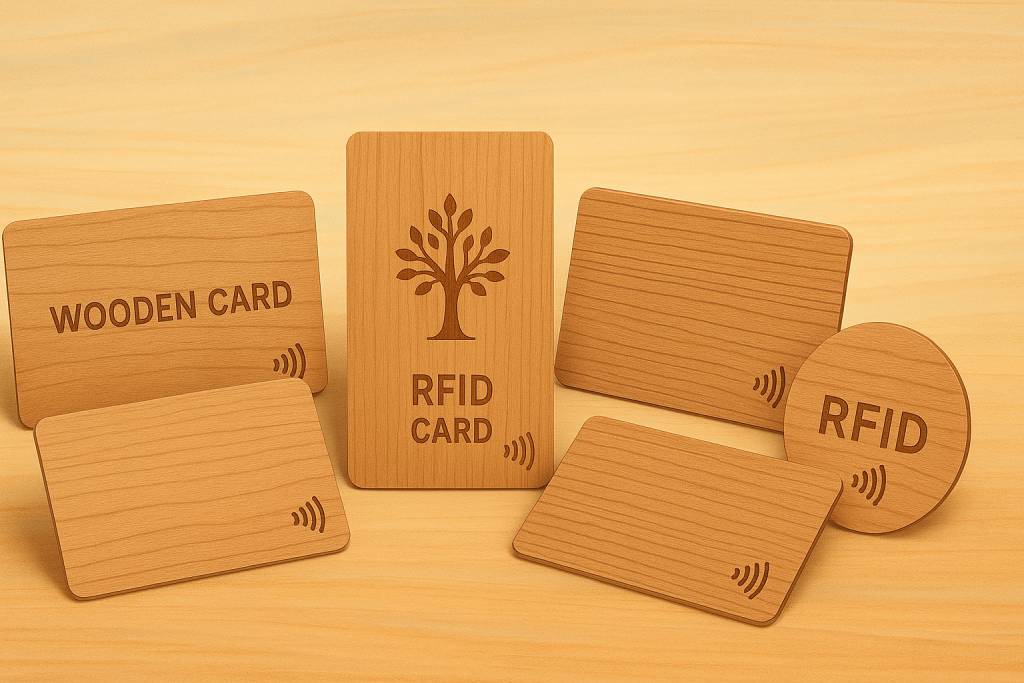
As digital transformation continues to redefine access control, security, and identity management, businesses are increasingly seeking sustainable alternatives that align with both innovation and environmental responsibility. Among these, wooden RFID cards have emerged as a practical, eco-conscious alternative to traditional plastic cards.
By combining advanced RFID and NFC chip technology with sustainably sourced wood materials, wooden RFID cards offer a seamless fusion of functionality, design sophistication, and environmental stewardship. These smart cards are fully compatible with existing RFID infrastructures while delivering an enhanced tactile and visual experience for end-users.
This article explores in depth why wooden RFID cards are becoming a preferred choice across industries—from hospitality and events to corporate security and membership systems. We will break down five key reasons why choosing wooden RFID cards is a smart move, not only for operational efficiency but also for sustainable brand identity.
1. Eco-Friendly and Sustainable Materials
A Responsible Alternative to Plastic
Traditional RFID cards are typically made from PVC or PET plastic—materials derived from fossil fuels that are neither biodegradable nor easily recyclable. The environmental impact of producing and disposing of millions of plastic access cards annually is significant, contributing to pollution, resource depletion, and landfill overflow.
Wooden RFID cards, by contrast, are made from renewable and biodegradable materials. Commonly used wood types include bamboo, walnut, maple, cherry, and birch, many of which are sourced from sustainably managed forests and certified by organizations such as the Forest Stewardship Council (FSC). These woods offer a significantly reduced carbon footprint over their lifecycle.
Lower Energy Consumption and Emissions
The production of wooden RFID cards typically involves less chemical processing and energy consumption compared to plastic card manufacturing. Some card manufacturers employ eco-friendly adhesives, water-based finishes, and low-impact production methods to further reduce environmental impact.
Using wood also supports a circular economy model. Many suppliers offer cards made from recycled or reclaimed wood, giving new life to materials that would otherwise be discarded. This aligns with global ESG (Environmental, Social, Governance) goals and can help companies meet sustainability benchmarks or LEED certification standards.
2. Enhanced Aesthetics and Brand Differentiation
Unique, Natural Appearance
One of the most immediately noticeable benefits of wooden RFID cards is their natural beauty. Each card is unique due to the inherent grain and texture of the wood, offering a warm, tactile feel that plastic simply cannot replicate. This makes them ideal for brands looking to offer a premium, memorable user experience.
The organic look of wood carries connotations of authenticity, craftsmanship, and environmental consciousness. These associations enhance the perceived value of the card and, by extension, the organization that issues it. Businesses in industries like hospitality, fashion, architecture, or lifestyle can use wooden cards to reinforce a cohesive brand image.
Customization Options
Wooden RFID cards offer a broad range of customization options. Through techniques such as laser engraving, UV printing, embossing, or screen printing, companies can add logos, artwork, serial numbers, or QR codes. Unlike printed plastic, engraved designs on wood are durable and less prone to fading or scratching.
Even the choice of wood species can be used to express brand identity. For example, dark walnut suggests luxury and tradition, while light bamboo evokes minimalism and sustainability. Cards can also be cut into non-standard shapes or sizes, allowing for further distinction in design.
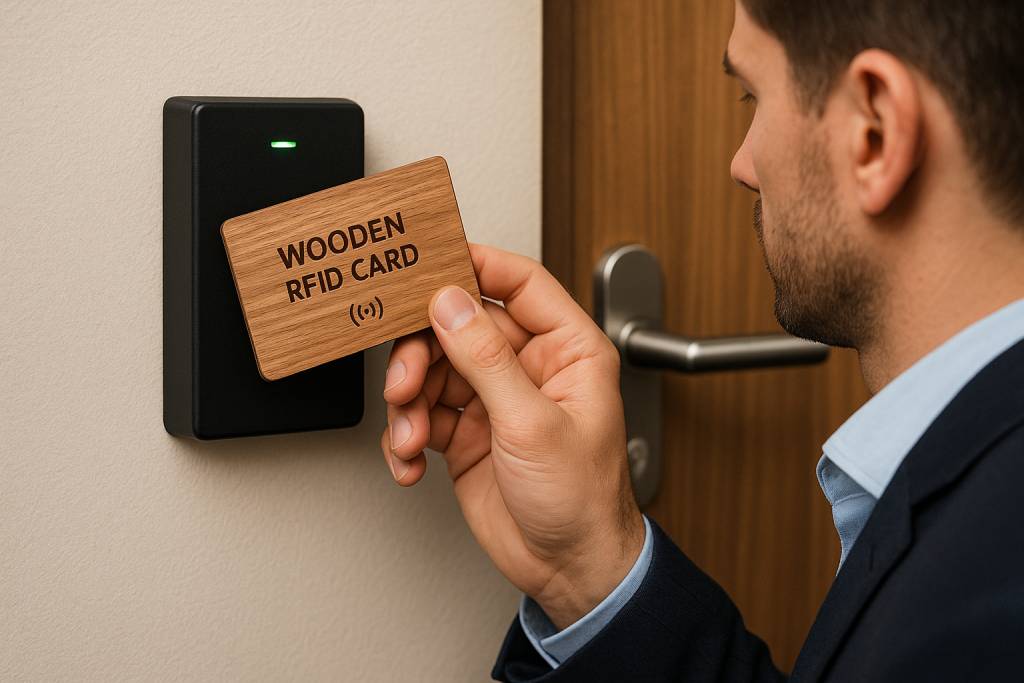
3. Durability and Performance
Long-Lasting Materials
While wood is often perceived as fragile compared to plastic, modern wooden RFID cards are treated with specialized coatings that provide resistance to moisture, abrasion, and UV exposure. With proper finishing, these cards maintain their structural integrity and aesthetic appeal even under frequent handling.
The lifespan of a wooden RFID card is comparable to that of high-quality plastic cards, making them suitable for long-term applications such as hotel key cards, corporate badges, membership cards, or transit passes. Many are rated to withstand hundreds of contactless interactions without degradation.
Reliable RFID/NFC Functionality
Internally, wooden RFID cards use the same chip technology as plastic cards. Common chips include MIFARE Classic®, MIFARE DESFire®, NTAG213/216, and EM4200. The wooden casing does not interfere with signal strength or transmission speed, provided the card is manufactured with precision alignment of the antenna and chip.
These cards are compatible with industry-standard RFID readers, terminals, and encoding systems, ensuring seamless integration with existing infrastructure. Some providers also offer dual-interface chips or multi-frequency solutions for environments with diverse access requirements.
4. Application Versatility Across Industries
Hospitality and Tourism
Wooden RFID cards are widely adopted in the hospitality sector. Hotels, eco-resorts, and short-term rentals use them as key cards to reinforce their sustainability messaging. Their tactile quality adds a sense of luxury to the check-in experience, and their reusability fits well with eco-conscious guest programs.
Corporate and Office Use
Businesses use wooden RFID cards for employee ID badges and access control. The natural material projects a sophisticated, forward-thinking image while maintaining all necessary security features. Cards can be encoded with employee data, encrypted credentials, and integrated with digital time tracking systems.
Events and Conferences
For events and exhibitions, wooden RFID cards function as contactless passes or NFC-enabled business cards. Organizers appreciate their durability and branding potential, while attendees are more likely to keep and reuse them—amplifying post-event marketing impact.
Retail and Membership Programs
In the retail sector, wooden RFID cards are used for loyalty programs and VIP memberships. Their unique appearance sets them apart from standard plastic loyalty cards, helping to foster emotional connection and brand loyalty.
5. Strong Message of Sustainability and Innovation
Tangible Proof of Green Values
Issuing wooden RFID cards sends a clear and visible message: your organization values sustainability. This gesture resonates with consumers and partners who prioritize ethical business practices. It’s one thing to say you're committed to the environment—it’s another to hand someone a biodegradable smart card that proves it.
Innovation Meets Environmental Responsibility
Wooden RFID cards represent the convergence of technological innovation and environmental mindfulness. They show that advanced digital solutions can coexist with nature-inspired design and materials. This dual narrative—tech-forward and eco-conscious—can enhance stakeholder perception and strengthen market position.
Many businesses have already begun to adopt wooden RFID cards as part of broader sustainability strategies. Whether it’s to reduce plastic waste, comply with ESG goals, or appeal to a younger, eco-aware customer base, wooden cards are more than just a material change—they’re a strategic branding tool.
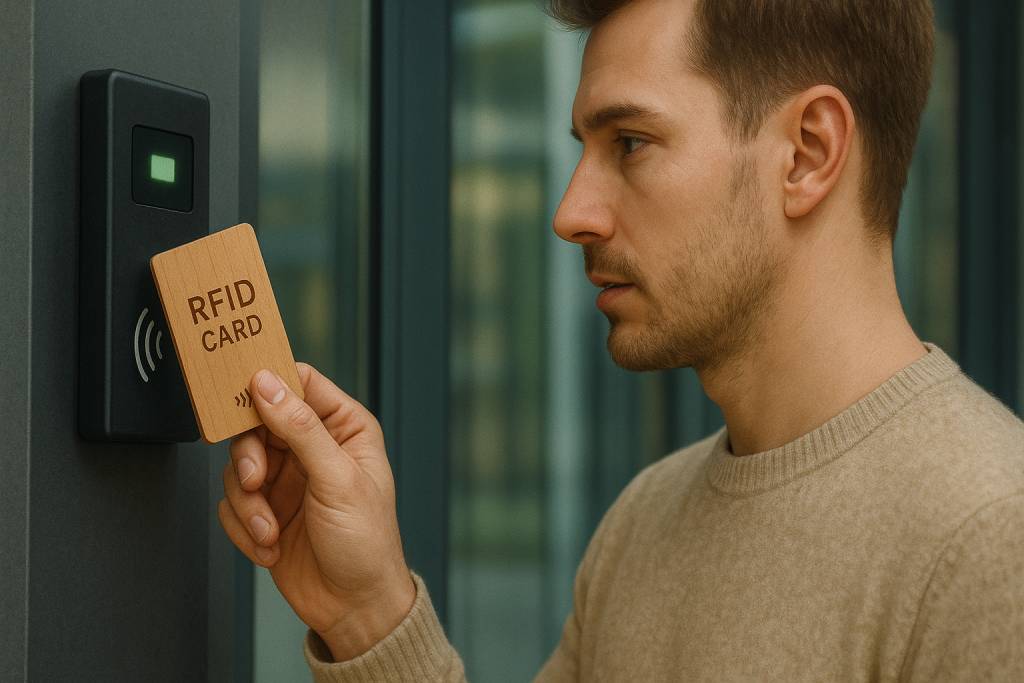
Conclusion
Wooden RFID cards are not a trend—they are a well-founded evolution in the world of access control and identity management. They provide all the reliability of traditional RFID technology while delivering superior aesthetics, reduced environmental impact, and enhanced brand value.
For organizations looking to make a meaningful, visible commitment to sustainability, wooden RFID cards offer a practical and powerful solution. They turn everyday interactions into opportunities for storytelling, connection, and brand reinforcement. As businesses continue to balance innovation with responsibility, the adoption of eco-friendly materials like wood in smart technologies will only become more relevant.
Whether you're a hotelier, event organizer, corporate administrator, or retailer, transitioning to wooden RFID cards can be a small change with a lasting impact—for your brand, your users, and the planet.
Why Choose Us?
Established in 2010 – Over a decade of RFID experience
Full customization – RFID cards, wristbands, key fobs, and smart devices
High quality – ISO-compliant materials (ISO 14443, ISO 15693)
Secure solutions – Encrypted protocols and data protection
Flexible scalability – From startups to enterprise-level projects
Contact us today to learn how we can help streamline your inventory management with reliable, smart RFID solutions.


